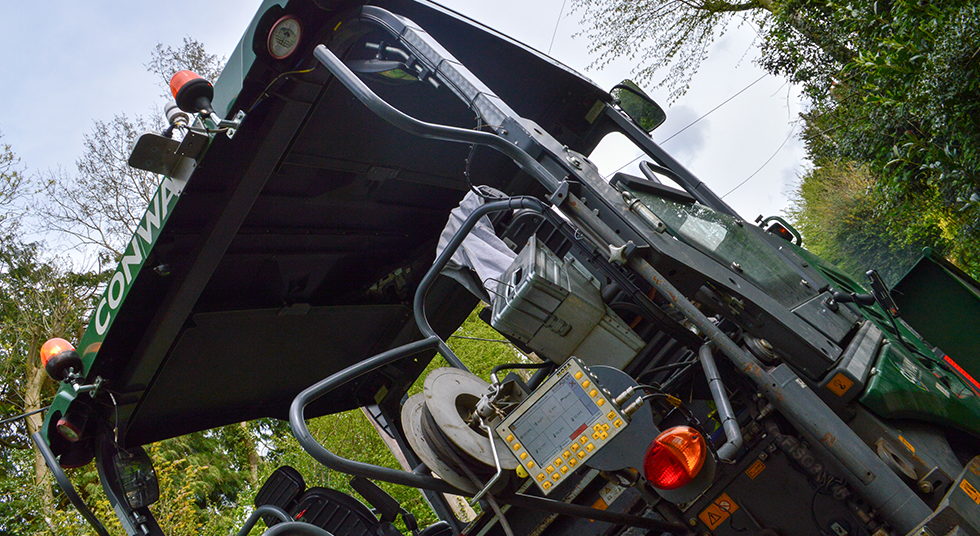Delivering Innovation
We have been trialling a new sensor system that automatically records data on the conditions under which highways materials are laid.
At FM Conway, our self-supply of asphalt means that we can provide detailed data for customers about the composition of our highway materials.
Jak Edwards, Senior Contracts Manager at FM Conway, explains:
“Sensors affixed to our vehicles track information about each load. The tracking starts as soon as a mix is loaded at one of our asphalt manufacturing plants, logging vital statistics like mix composition, time of loading and temperature at loading. Once on site, sensors on our pavers track the temperature at rolling, the density of the mix as it goes down, how many passes are performed by the roller, weather conditions like humidity, wind speed and temperature, and the exact location using GPS."
.jpg)
